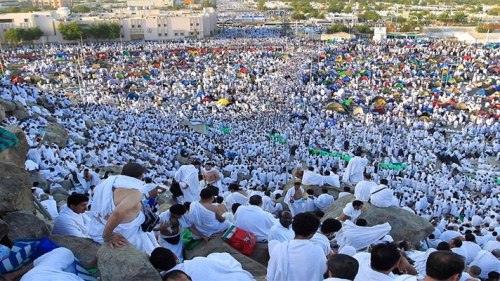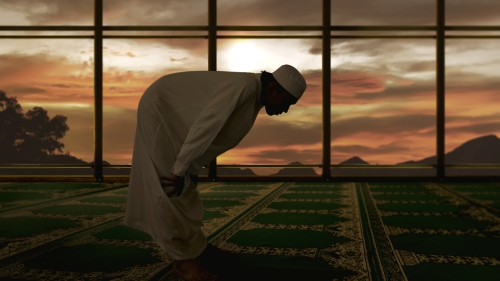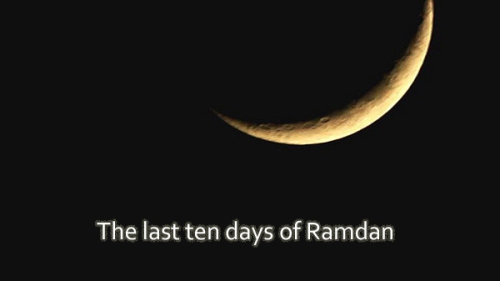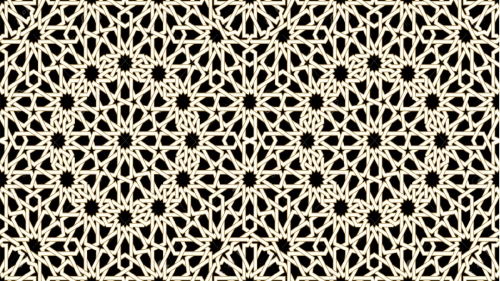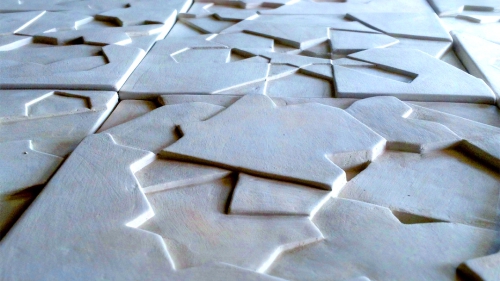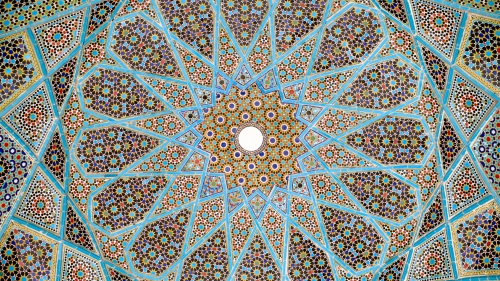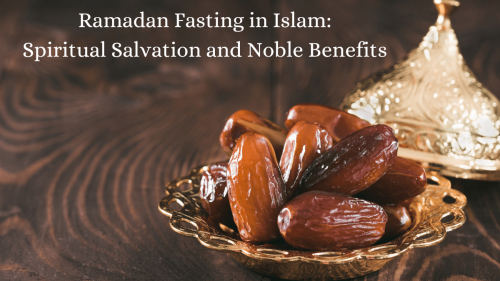Islamic Legal Rules of Fasting

What is Sawm (Fasting)?
The Arabic word for fasting is called "sawm" in the Quran. The word sawm literally means "to abstain". Chapter Maryam of the Quran says that Mary the mother of Jesus said "I have vowed a "sawm" (fast) for the sake of the Merciful, so today I shall not speak to anyone." [Quran 19:26]. According to Shariyah, the word sawm means to abstain from all those things that are forbidden during fasting from the break of dawn to the sunset, and to do this with the intention of fasting.
Purpose of Fasting
In chapter 2 verse 183 the Quran says, "O you who believe, fasting is prescribed for you as it was prescribed for those who were before you, in order that you may learn taqwa (piety)".
Taqwa is a very important spiritual and ethical term of the Quran. It is the sum total of all Islamic spirituality and ethics. It is a quality in a believer's life that keeps him or her aware of God all the time. A person who has taqwa loves to do good and avoid evil for the sake of God. Taqwa is piety, righteousness and consciousness of God. Taqwa requires patience and perseverance. Fasting teaches patience, and with patience one can rise to the high position of taqwa.
The Prophet (SA) said that fasting is a shield. It protects a person from sin and lustful desires. When the disciples of Jesus asked him how to cast the evil spirits away, he is reported to have said, "But this kind never comes out except by prayer and fasting." (Matthew 17:21).
According to Imam Al Ghazali, fasting produces a semblance of divine quality of samadiyyah (freedom from want) in a human being. Imam Ibn Al Qayyim, viewed fasting as a means of releasing the human spirit from the clutches of desire, thus allowing moderation to prevail in the carnal self. Imam Shah Waliullah Dahlawi (d. 1762 C.E.) viewed fasting as a means of weakening the bestial and reinforcing the angelic elements in human beings. Maulana Mawdudi (d. 1979 C.E.) emphasized that fasting for a full month every year trains a person individually, and the Muslim community as a whole, in piety and self restraint.
Fasting Is Obligatory
In the second year of Hijrah, Muslims were commanded to fast in the month of Ramadan every year as mentioned in the verse above [Al-Baqarah 2:183]. The Quran further says "The month of Ramadan is that in which was revealed the Quran, wherein is guidance for humankind and the clear signs of guidance and distinction. Thus whosoever among you witness the month must fast..." [Al-Baqarah 2:184].
Prophet Muhammad (SA) explained this further in a number of his statements reported in the books of Hadith. It is reported by Imam Al-Bukhari and Imam Muslim on the authority of Ibn Umar that the Messenger of God said, "Islam is built upon five pillars: testifying that there is no god except God and that Muhammad is the Messenger of God, performing Prayer, paying the zakah, making the pilgrimage to the Sacred House (Hajj), and fasting during the month of Ramadan."
The entire Muslim world is unanimous in the principal of fasting in the month of Ramadan and considers it obligatory upon every person who is physicaly capable (mukallaf).
Rules of Fasting
Who must fast?
Muslims all over the world wait eagerly for Ramadan, as it is a time of increased inner peace and well-being.
Fasting in the month of Ramadan is obligatory upon every adult Muslim, male or female, who has reached puberty, is sane and who is not sick or traveling.
Sickness could be a temporary sickness from which a person expects to be cured soon. Such a person should not fast during the days of his or her sickness, but he or she must fast later after Ramadan to complete the missed days. Those who are sick with incurable illness and expect no better health are also allowed not to fast but they must pay the fidyah, which is giving a day's meals for each fast missed to a needy person. Instead of food for one day one can also give equivalent amount of money to a needy person. Women in their menses and post-natal bleeding are not allowed to fast, but they must make up the fast later after Ramadan. If pregnant women and mothers who are nursing babies can also postpone their fasting to a later time when they are able to do so.
A travel according to the Shariah is any journey that takes you away from your city of residence, a minimum of 48 miles or 80 kilometers. The journey must be for a good cause. One must avoid frivolous travel during Ramadan which causes a person to miss fasting. If possible one should try to change their travel plans during Ramadan to be able to fast and should not travel unless it is necessary. The traveler who misses the fasts of Ramadan must make up those missed days later as soon as possible after Ramadan.
Fasting According to the Sunnah
1 - Take sahur (pre-dawn meal). It is Sunnah and there is a great reward and blessing in taking sahur. The best time for sahur is the last half hour before dawn or the time for Fajr prayer.
2 - Take iftar (break-fast) immediately after sunset. Shariah considers sunset when the disk of the sun goes below the horizon and disappears completely.
3 - During the fast, abstain from all false talks and deeds. Do not quarrel, have disputes, indulge in arguments, use bad words, or do anything that is forbidden. You should try to discipline yourself morally and ethically, besides gaining physical training and discipline. You should also not make a show of your fasting by talking too much about it, or by showing dry lips and a hungry stomach, or by showing a bad temper. The fasting person must be a pleasant person with good spirits and good cheer.
4 - During the fast, do acts of charity and goodness to others and increase your worship and reading of the Quran. Every one should try to read the whole Quran at least once during the month of Ramadan.
Things That Invalidate the Fast
You must avoid doing anything that may render your fast invalid. Things that invalidate the fast and require qadaa' (making up for these days) are the following:
1 - Eating, drinking or smoking deliberately, including taking any non-nourishing items by mouth or nose.
2 - Deliberately causing yourself to vomit.
3 - The beginning of menstrual or post-childbirth bleeding even in the last moment before sunset.
4 - Sexual intercourse or other sexual contact (or masturbation) that results in ejaculation (in men) or vaginal secretions (orgasm) in women.
5 - Eating, drinking, smoking or having sexual intercourse after Fajr (dawn) on the mistaken assumption that it is not Fajr time yet. Similarly, engaging in these acts before Maghrib (sunset) on the mistaken assumption that it is already Maghrib time.
Sexual intercourse during fasting is forbidden. Those who engage in it must make both qadaa' (make up the fasts) and kaffarah (expiation by fasting for 60 days after Ramadan or by feeding 60 poor people for each day of fast broken in this way). According to Imam Abu Hanifah, eating and/or drinking deliberately during fast also entail the same qadaa' and kaffarah.
Things That Do Not Invalidate Fasting
Using a miswak to clean your teeth does not invalidate fasting
During fast, the following things are permissible:
1 - Taking a bath or shower. If water is swallowed involuntarily it will not invalidate the fast. According to most of the jurists, swimming is also allowed in fasting, but one should avoid diving, because that will cause the water to go from the mouth or nose into the stomach.
2 - Using perfumes, wearing contact lenses or using eye drops.
3 - Taking injections or having a blood test.
4 - Using miswak (tooth-stick) or toothbrush (even with tooth paste) and rinsing the mouth or nostrils with water, provided it is not overdone (so as to avoid swallowing water).
5 - Eating, drinking or smoking unintentionally, i.e., forgetting that one was fasting. But one must stop as soon as one remembers and should continue one's fast.
6 - Sleeping during the daytime and having a wet-dream does not break one's fast. Also, if one has intercourse during the night and was not able to make ghusl (bathe) before dawn, he or she can begin fast and make ghusl later. Women whose menstruation stops during the night may begin fasting even if they have not made ghusl yet. In all these cases, bathing (ghusl) is necessary but fast is valid even without bathing.
7 - Kissing between husband and wife is allowed in fasting, but one should try to avoid it so that one may not do anything further that is forbidden during the fast.
Requirements for Fasting to Be Valid
There are basically two main components of fasting:
1 - The intention (niyyah) for fasting. One should make a sincere intention to fast for the sake of God every day before dawn. The intention need not be in words, but must be with the sincerity of the heart and mind. Some jurists are of the opinion that the intention can be made once only for the whole month and does not have to be repeated every day. It is, however, better to make intention every day to take full benefit of fasting.
2 - Abstaining from dawn to dusk from everything that invalidates fasting as mentioned above.
Dr. Muzammil H. Siddiqi is the imam and director of the Islamic Society of Orange County, California, USA and former president of the Islamic Society of North America.
Topics: Fasting (Sawm), Ramadan Channel: Ramadan - Day 1, Ramadan - Day 10, Ramadan - Day 20, Ramadan Guide
Views: 660692
Related Suggestions
don't recite the holy quran?
This is MAJOR SHIRK and you cannot promote these views whether for purposes of dialogue or not because you are confusing Muslims into thinking that this info may be accurate. Audhu billah. Please replace with Accurate authentic information. This may lead Muslims to commit shirk by your article! May Allah protect us from shirk,Ameen.
as for my fellow brothers and sisters, you can take free diploma classes on Islam at Islamic online university (free diploma section) and get a certificate after passing each class, for Allah's sake you learn and teach others. Enjoin good, forbid evil.
to himself/herself so as to obtain the Taqwa which is the essence of
fasting.
i wanted to know that when fasting can a Muslim listen to music?
practise music? e.g guitar(acustic/electric/bass),flute,drums etc
plz email me bak. thank you
Allah Hafiz.
I have a query.
Will fast be invalidated if a person (who is fasting) washes the dead body (janaza)?
Please let me know about it.
That was a great article on the Islamic ways of fasting. I found it insightful as well as excellent advice for when I am fasting (now, since it is Ramadan 2004). Insallah, I will be able to follow the guides which Allah has given to us.
I don't know how many places in the world you have been to or seen, but there are many good brothers and sisters and organizations around the world that are doing a lot of good dawah work and community development. Stop looking at the bad always and keep your focus on the good...and help to make it grow instead of condemning what is bad all the time or what you see that is bad in your eyes. I hope you understand what I am trying to say to you.
The way things are it is too tedious to download a Realplayer etc.







